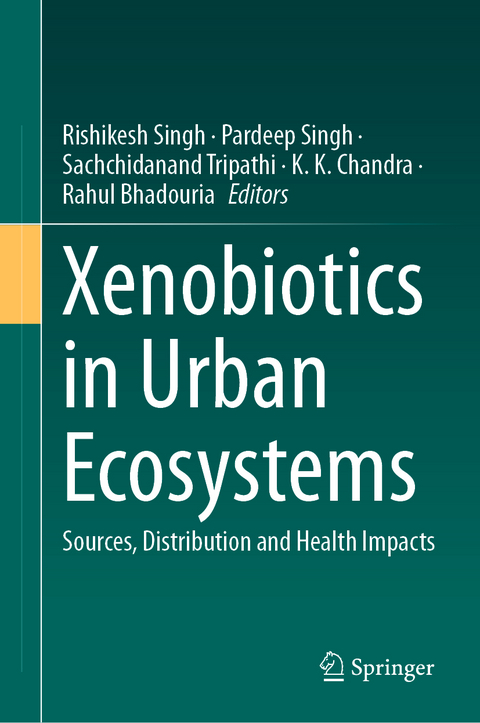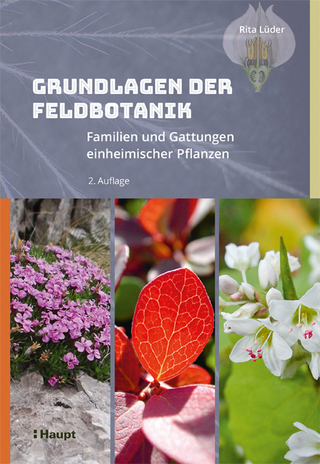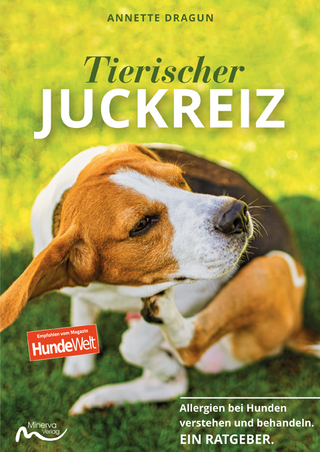
Xenobiotics in Urban Ecosystems
Springer International Publishing (Verlag)
978-3-031-35774-9 (ISBN)
lt;p>Dr. Rishikesh Singh is working as Post-doctoral Fellow at Panjab University, Chandigarh, India. Dr. Singh obtained his doctoral degree from Institute of Environment & Sustainable Development, Banaras Hindu University, Varanasi. He is an environmental scientist with his research interests in soil carbon dynamics, land-use change and management, waste management, environmental contaminants, biochar, and carbon sequestration. He has published several research and review articles, and is a reviewer of several international journals of Elsevier, Wiley, Taylor and Francis, Frontiers, PLoS, and Springer Nature groups. He has published six books in leading international publishers such as Elsevier, Springer Nature, Wiley. Dr. Singh has 65 Scopus publications with 999 citations and a Scopus h-index 19.
Dr. Pardeep Singh is presently working as Assistant Professor (Department of Environmental Studies, PGDAV College University of Delhi, New Delhi, India). He obtained his master degree from the Department of Environmental Science, Banaras Hindu University, Varanasi, India. He obtained his doctorate degree from Indian Institute of Technology (Banaras Hindu University) Varanasi.
Dr. Sachchidanand Tripathi is an Associate Professor at Department of Botany, Deen Dayal Upadhyaya College, University of Delhi, Delhi, India. He obtained his doctoral degree from the Department of Botany, Banaras Hindu University, India. The areas of his interest are plant ecology, soil ecology, ecophysiology and urban ecology. He has published more than 50 publications (including research publications, books and book chapters, conference proceedings) and 5 books with reputed international journals and publishers.
Dr. K. K. Chandra is working as Professor and Head, Department of Forestry, Wildlife & Environmental Sciences, at the Guru Ghasidas Central University, Bilaspur, Chhattisgarh, India. He has been awarded a Ph. D. from the Forest Research Institute, Dehradun, India. The area of his doctoral research was the contribution of Mycorrhizal fungi in restoration of coal mined areas. His current research areas are "Agroforestry for environmental conservation and sustainable development', 'evaluation of high carbon stock tree species for urban forestry', Arbuscular mycorrhizal fungi for restoration of wastelands', Impact of drought conditions on growth and physiology of forest species'.
Dr. Rahul Bhadouria is working as an assistant professor at the Department of Environmental Studies, Delhi College of Arts and Commerce, University of Delhi, New Delhi, India. He obtained his doctoral degree from the Department of Botany, Banaras Hindu University, Varanasi, India. He has published more than 22 papers, 22 book chapters, and 8 edited books in internationally reputed journals/publishers. His current research areas are, management of soil C dynamics to mitigate climate change, a perspective on tree seedling survival and growth attributes in tropical dry forests under the realm of climate change, plant community assembly, functional diversity and soil attributes along the forest-savanna-grassland continuum in India, recovery of degraded mountains in central Himalayas and urban ecology.
1-Xenobiotics in the urban ecosystems: Current status and trend analysis.- 2-Urban water cycle: A potential source and sink of xenobiotics.- 3-Xenobiotics in the urban soils: Sources and environmental concerns.- 4-Major strategies for the assessment of xenobiotics in the urban soils.- 5-Advancements in the analytical techniques for precise xenobiotic assessment.- 6-Xenobiotics in urban soils: Bioavailability and threat levels.- 7-Transport and metabolism of xenobiotics in the urban ecosystem.- 8-Xenobiotics and soil microbial community in the urban ecosystem.- 9-Impact of xenobiotics on urban agriculture/crops.- 10-Xenobiotics and urban plants: impact and threat levels.- 11-Food chain contamination and impact of xenobiotics on human health.- 12-Biotransformation of xenobiotics in the urban ecosystem.- 13-Phytoremediation and xenobiotics: exploring the potential of selected plants.- 14-Remediation strategies for xenobiotics in urban soils.- 15-Socioeconomic impacts and policy measures for xenobiotics in urban ecosystems.- 16-Management and regulatory aspects of xenobiotics: Government initiatives.
| Erscheinungsdatum | 02.11.2023 |
|---|---|
| Zusatzinfo | XV, 433 p. 53 illus., 49 illus. in color. |
| Verlagsort | Cham |
| Sprache | englisch |
| Maße | 155 x 235 mm |
| Gewicht | 876 g |
| Themenwelt | Sachbuch/Ratgeber ► Natur / Technik ► Natur / Ökologie |
| Naturwissenschaften ► Biologie ► Ökologie / Naturschutz | |
| Naturwissenschaften ► Geowissenschaften | |
| Schlagworte | bioremediation • Biotransformation • Contaminated systems • microorganisms • Phytoremediation • Urban Ecosystems • Urban plants • xenobiotics |
| ISBN-10 | 3-031-35774-4 / 3031357744 |
| ISBN-13 | 978-3-031-35774-9 / 9783031357749 |
| Zustand | Neuware |
| Informationen gemäß Produktsicherheitsverordnung (GPSR) | |
| Haben Sie eine Frage zum Produkt? |
aus dem Bereich


